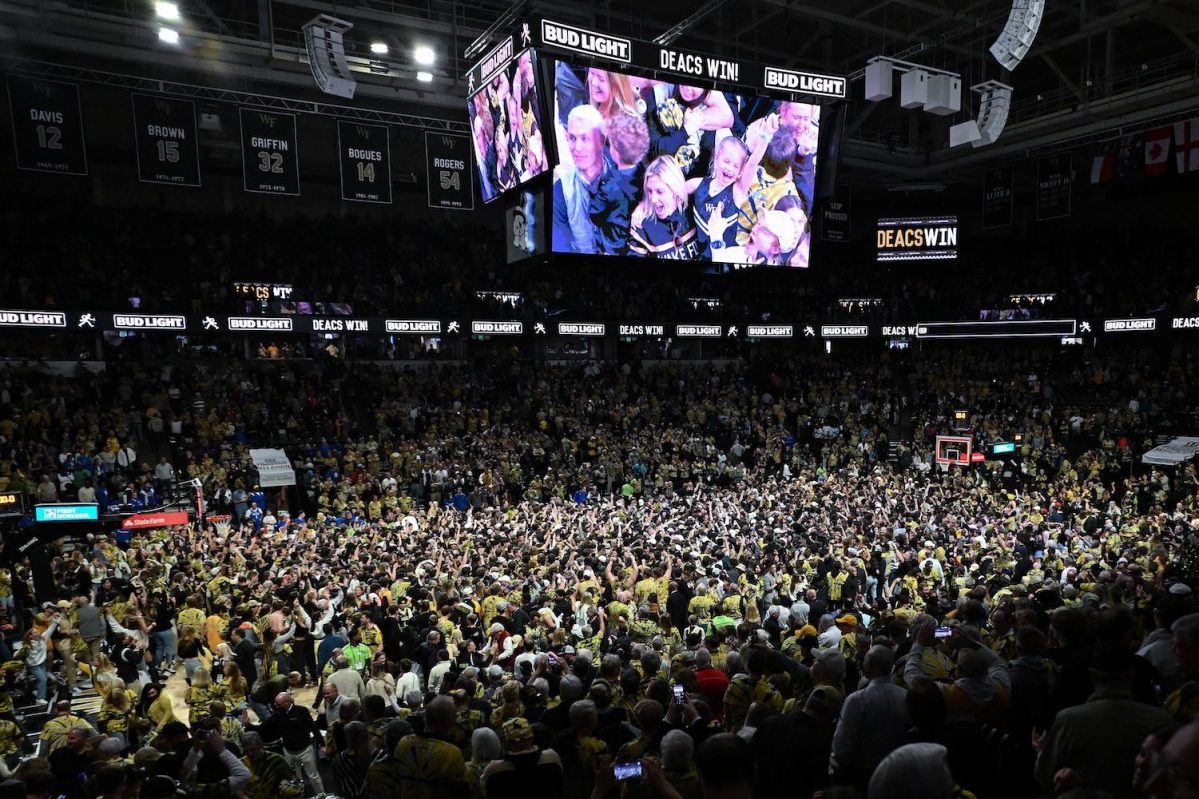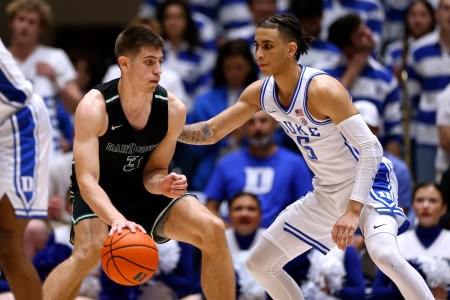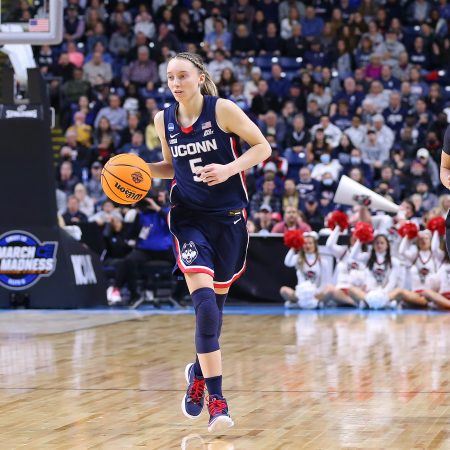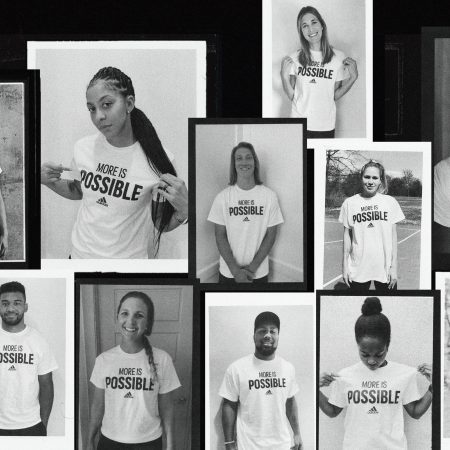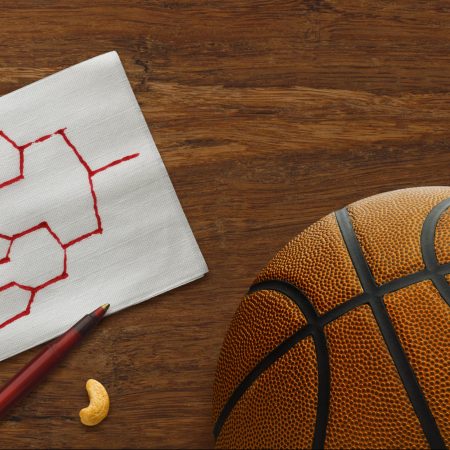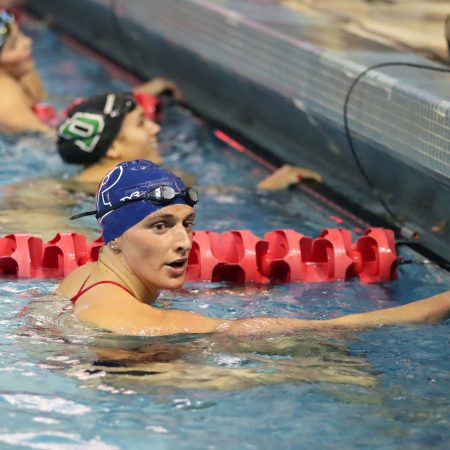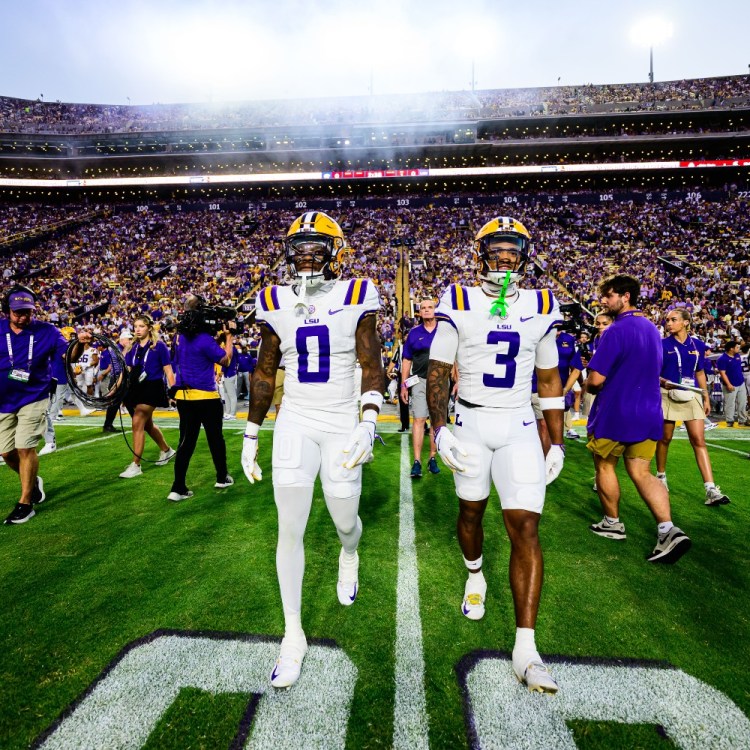Court storming after a significant victory is a college basketball tradition that’s been enjoyed by countless school student bodies. If a group of head coaches and other leaders have their way, though, it could be coming to an end — and it’s probably not a coincidence that calls to ban court storming arrive just as players begin to get paid.
We Just Moved Closer to the End of College Athlete Exploitation
Dartmouth men’s basketball team players are now recognized as employees by the National Labor Relations BoardYesterday, per ESPN, Jon Scheyer, Bill Self and other college basketball leaders said court storming in college basketball should cease to exist out of “safety concerns and potential legal impacts for athletes and students.” The remarks came two days after Wake Forest fans flooded their home court after an upset victory against Duke. In the melee, Duke forward Kyle Filipowski was bumped by a fan and injured his leg. “This gotta change…” Filipowski posted on social media and also said in an interview he felt he was run into intentionally.
Last month, the biggest star in all of college sports, Iowa women’s hoops team supershooter Caitlin Clark, was knocked to the floor in a court storm at Ohio State. According to an Associated Press report, Clark was “shaken up but not injured.”
Scheyer, who is head coach of the Duke Blue Devils men’s basketball team, said on Monday that the ACC should implement a court storm ban immediately and not wait until the offseason to set a new rule in place. “At the end of the day, players and coaches and officials are the only people that belong on a court,” he said.
Self, who leads the University of Kansas’ men’s basketball team, said, “Let’s get rid of it, totally…I don’t see the positive impact.” He then described a hypothetical scenario in which “a kid storms the court, runs into somebody, he gets sued and his life is changed forever.” Adding that “it works both ways,” he said it was certainly possible that a student athlete could accidentally hurt a fan while trying to protect themselves. “That’s a lawsuit against them,” he said.
Financial concerns are increasingly at the center of this years-long debate. Thanks to NIL deals, college players earn money for their performance, and soon student athletes could receive paychecks as school employees. So now their livelihoods are at stake, and not just prospective ones in a potential post-college career. This could ultimately be the biggest pin that bursts the bubble.
Whether you’re looking to get into shape, or just get out of a funk, The Charge has got you covered. Sign up for our new wellness newsletter today.
